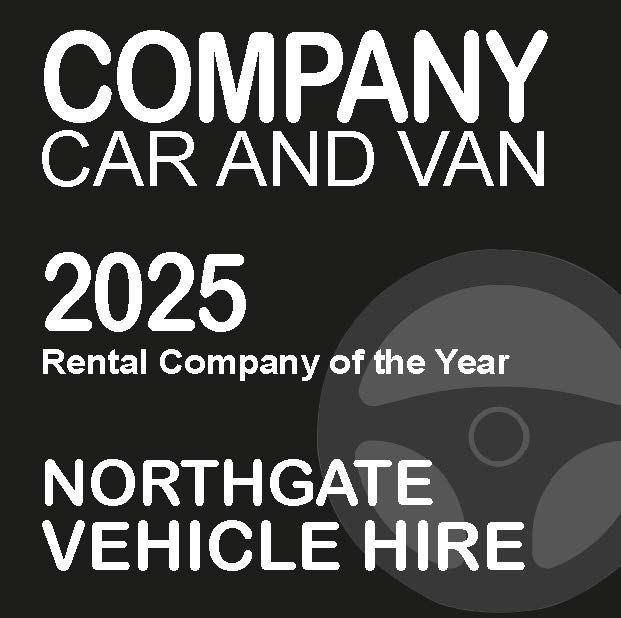Everything you need to know about road tax
![]() 22/08/2022
22/08/2022![]() 8 minutes read
8 minutes read
If you plan to drive a van on Britain’s roads, there are a few things you’ll need to have in place first, aside from simply having a vehicle to use. All UK drivers are legally obliged to have insurance and a valid driving licence for example, but most will also need to be paying road tax on any van they own that they store or use on the roads.
What is road tax?
Road tax – or Vehicle Excise Duty (VED) as it’s formally known – is a tax charged annually on most vehicles driven or kept on the UK’s roads, including commercial vans. Enforced by the DVLA, the amount you’ll need to pay depends on a combination of factors; and which factors apply will depend on when your van was first registered on the road.
Why do we pay road tax?
We pay road tax as a form of general taxation. Despite the name most people apply to this tax, its formal name (Vehicle Excise Duty), is a dead giveaway. The tax is actually charged against using motor vehicles rather than against using roads, and the money we each contribute ends up in the consolidated fund overseen by the Chancellor – in the same fund as things like corporation tax.
The Department for Transport and local authorities are jointly responsible for the upkeep of the UK’s roads. While these are allocated their budgets by the Government, there’s no direct chain from what we collectively contribute in VED to financing the upkeep of roads and car infrastructure. Road tax is just another form of personal tax contributing to the taxman’s pool, charged against vehicle usage (including vans), from which the Government can spend as needed.
Is anybody exempt from paying road tax?
Yes, there are several categories of vehicles for which road tax is not charged. Owners of electric vans that emit no carbon dioxide do not need to pay road tax, nor do vans that have been registered on the road for more than 40 years. But even if you won’t need to pay, you’ll still need to ensure your vehicle is registered for tax through the DVLA.
What happens if I don’t pay road tax?
There are serious penalties for driving without tax on a van. It’s also not worth chancing this, as the DVLA regularly runs computer checks between vehicle registration databases and Automated Number Plate Recognition (ANPR) cameras to detect vehicles driving on the roads without paying tax.
Initially, you can expect to receive an £80. fine, for which you can receive a 50% discount if paid within 28 days. Should you fail to pay this, you may be taken to court where a fine of up to £1,000 could be imposed, and your van could be clamped until this is paid.
If you’re not using your van and are not storing it on public roads, you’ll need to declare it SORN – a 'Statutory Off Road Notification'. This lets the DVLA know you won’t be driving the vehicle and therefore won’t be liable for tax.
How to pay road tax
You can easily register your vehicle online at GOV.UK, using a reference number from the vehicle logbook (V5C) of any van in your name, the green ‘new keeper’ slip from a new logbook, or that displayed on any recent reminder or last chance letter (V11) from the DVLA. You can then arrange to pay by debit, credit card, or set up a direct debit if you owe road tax.
Alternatively, you can deal with commercial van road tax at any eligible Post Office branch. You’ll need to provide proof of your reference number and must hand in any details you’ll need to set up a direct debit.
Can I pay van road tax monthly?
Yes, you can pay monthly road tax if you’d like to. You can either make a one-off annual payment, make one-off payments every six months, or arrange a monthly direct debit of 12 payments each year.
How much is my van road tax?
To check van tax for a vehicle you own, simply use the table below:
|
Registration date |
Fuel type/engine capacity |
Euro standard |
Annual tax rate (2021/22) |
|
Before 01/03/01 |
Engine under 1549 cc |
N/A |
£180 |
|
Engine over 1549 cc |
N/A |
£295 |
|
|
After 01/03/01 |
Diesel, Petrol, LPG |
All (except below) |
£290 |
|
Electric |
N/A |
£0 |
|
|
01/03/06 - 31/12/06 |
Diesel, Petrol, LPG |
Euro 4 |
£140 |
|
01/01/09 - 31/12/10 |
Diesel, Petrol, LPG |
Euro 5 |
£140 |
What else do I need to know about taxing a van?
Legal definitions
The DVLA sets a specific legal definition for what constitutes a commercial van or pick-up. Known as Light Goods Vehicles (LGVs), a van should weigh no more than 3,500kg. There are some grey areas, however, particularly when it comes to pick-ups and the growing selection of car-derived vans coming to market.
To check whether a model is classified as a van, simply refer to its logbook or look its specification up on the online VED check website. If the vehicle is designated ‘N1’ or ‘N2’, then it will be considered a van for tax purposes.
Taxing a rented van
No matter whether a van is owned, leased, or rented, somebody somewhere will need to be paying its road tax. In situations where a van is being hired, which party should cover the road tax on the van should be stated in the contract.
At Northgate Vehicle Hire, all the vans we offer for rental come with their road tax covered by us as standard.
Benefit in kind tax
If you drive a van as part of your job and the vehicle is provided to you through your employer, you may need to pay an additional tax known as benefit in kind (BIK) tax.
Benefits in kind are any perks offered to employees by their employer outside of their salary. Company cars or vans that the employee is free to use as they please, just as they might a vehicle of their own, are considered to be one of these perks.
It’s important to note that if you use a van for work, but only for work purposes (such as travelling between jobs and moving equipment) then you won’t need to pay benefit in kind tax. The tax only applies to company vehicles that are frequently used for personal journeys, such as going on the school run or making trips on your days off.
How much benefit in kind tax will I pay?
The BIK tax rates are different for cars and vans, and for vans, it’s relatively simple. Simply multiply your income tax band (20% or 40%) by the BIK tax value, which for example stands at £3,490.
That means 20% taxpayers will pay £696, while this is £1,396 annually for 40% taxpayers.
These can be reduced in some circumstances, such as if you can’t use the van for 30 days in a row, if you pay your employer for use of the van, or if you share the van with other employees.
Fuel benefit
If your employer also pays the bill for fuel in a van that you use for personal journeys, this is considered a benefit in its own right. 20% taxpayers will be charged £133.20, while the figure is £266.40 for 40% taxpayers.
If you’re looking for business vans to grow your fleet or change the way you work as a sole trader, you’ve come to the right place. Our van rental contracts offer you and your business the flexibility it needs to thrive. The range of vehicles we stock include standard through to specialist models, from leading manufacturers like Mercedes, Citroen, and Ford vans. Get in touch with our friendly team today to find out more, or start your search for a rental van through our vehicle finder.
Get in touch today and discover how we can support you
Contact Us







